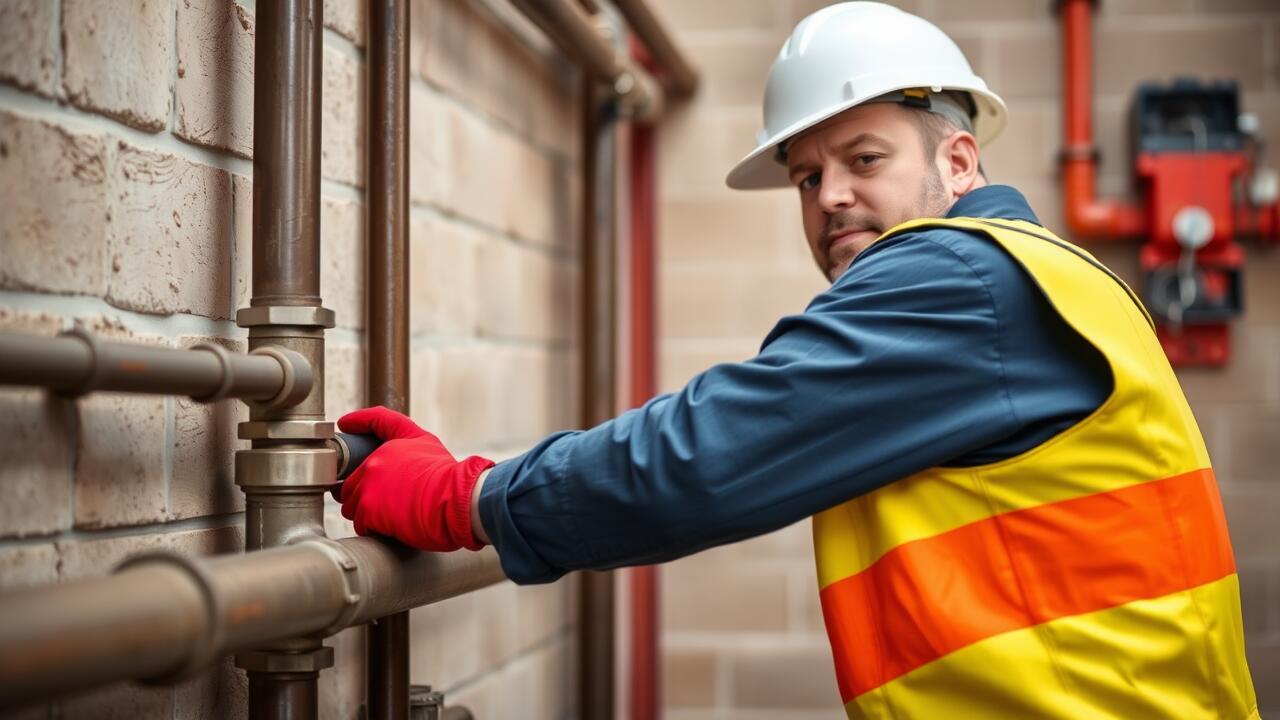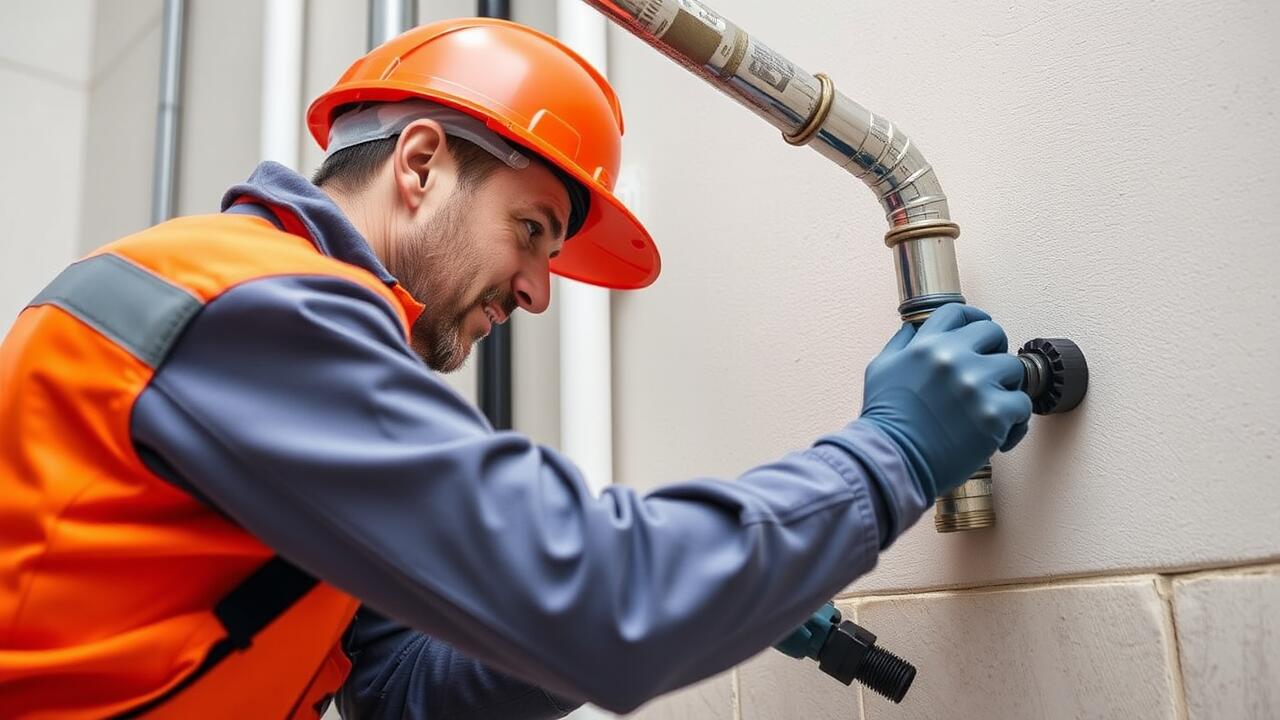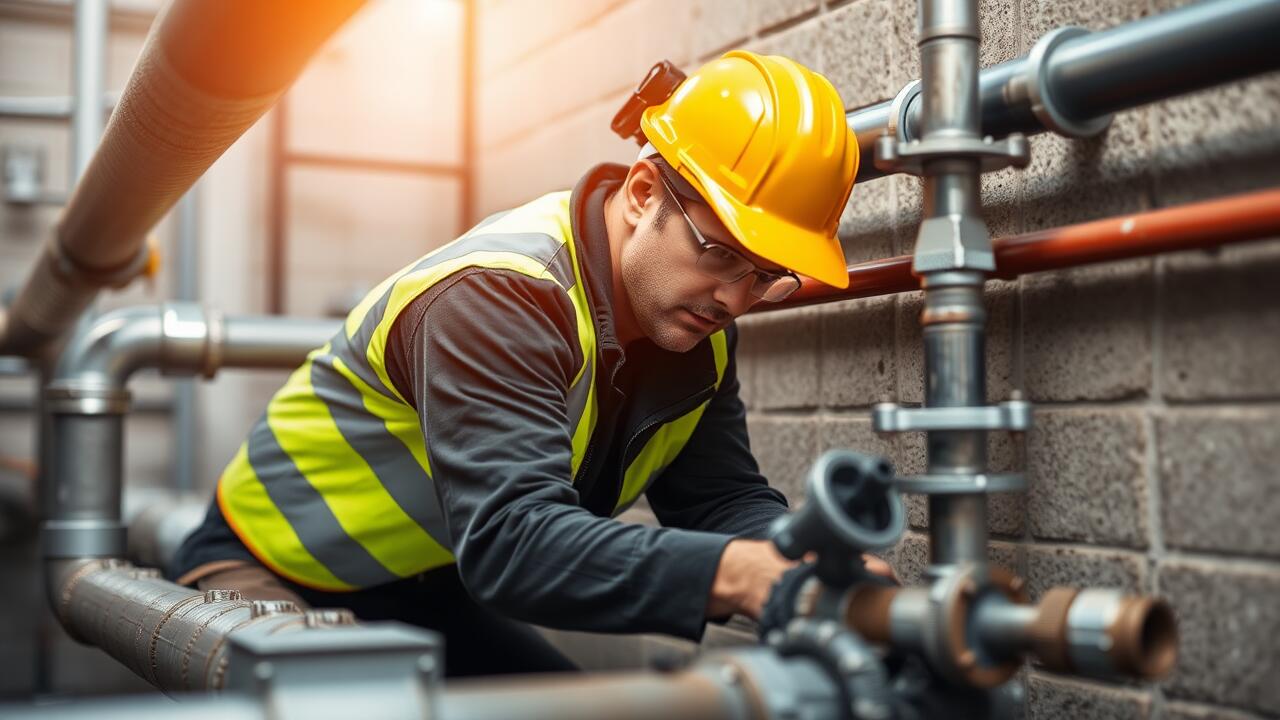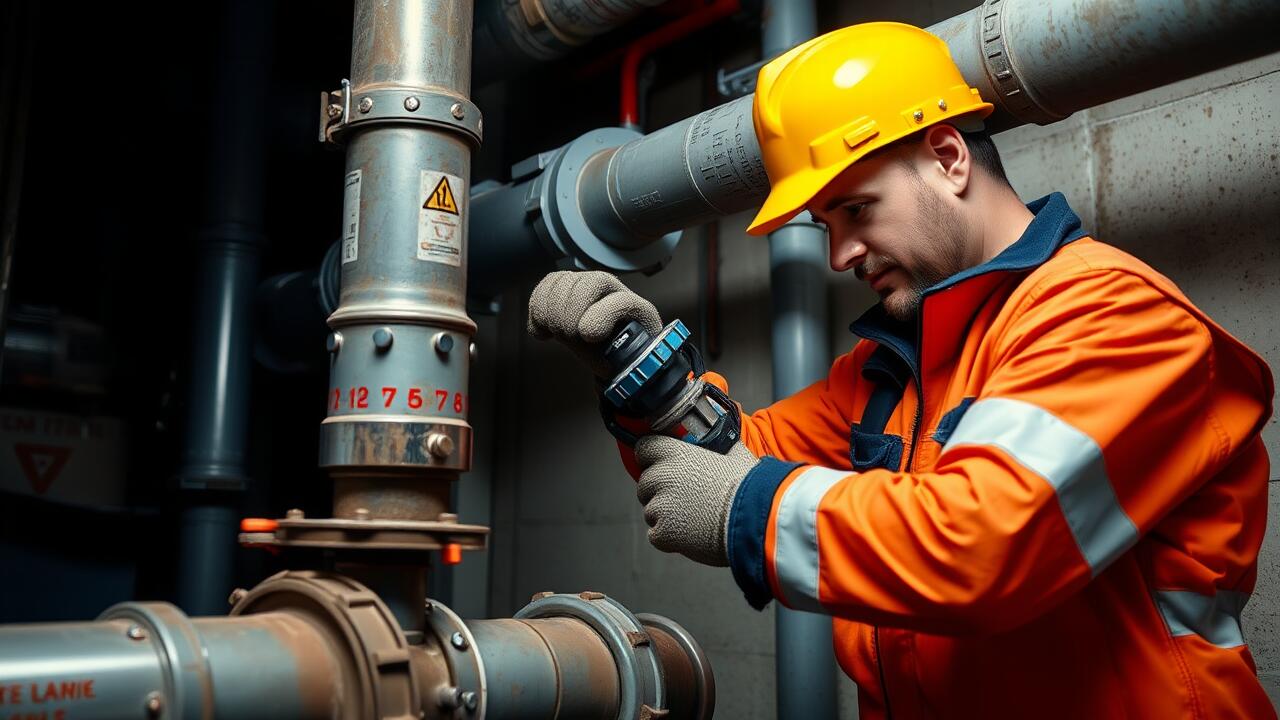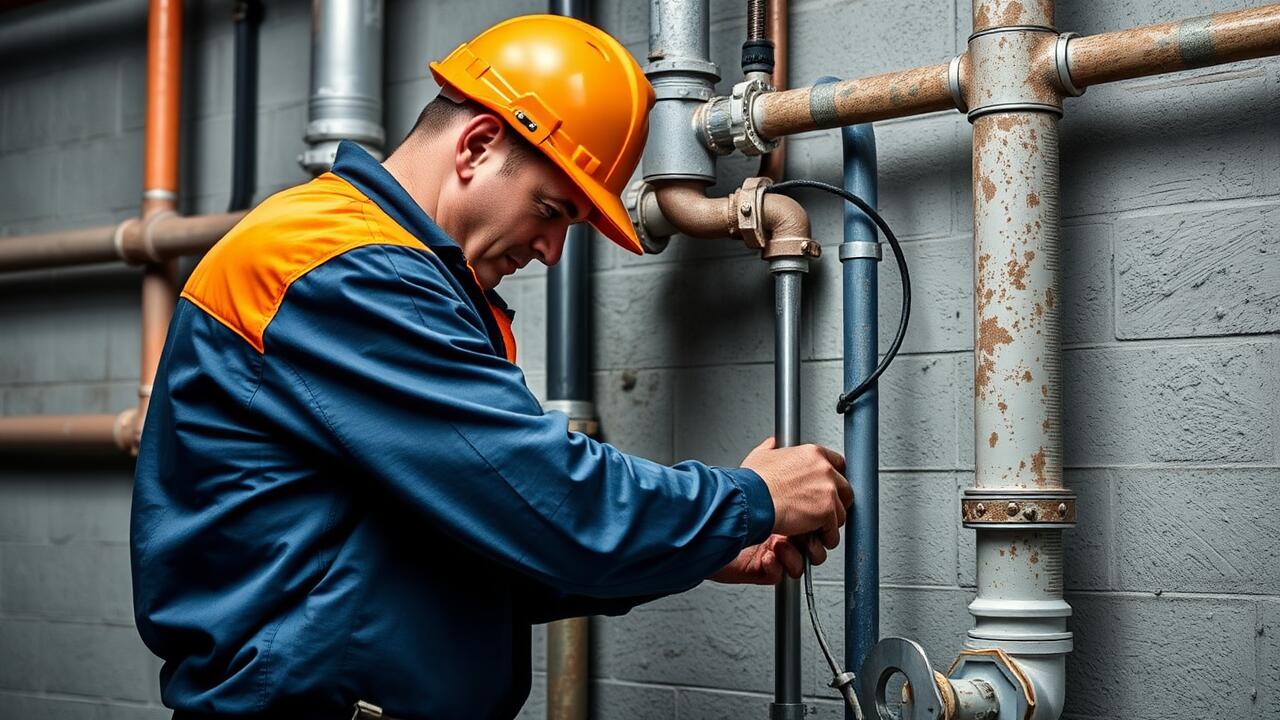
Evaluating Pipe Lifespan
When evaluating pipe lifespan, several factors must be considered. Environmental conditions, soil composition, and exposure to various elements contribute to how long a pipe will last. For instance, pipes used in humid areas may corrode faster than those in drier climates. Additionally, the demands placed on the pipe such as pressure and temperature fluctuations can also impact its durability.
In places like Downtown LA, Los Angeles Pipe installation has set certain standards to ensure long-lasting infrastructure. Choosing the correct material and installation techniques not only affects immediate performance but also has long-term implications for maintenance and replacement. By understanding these factors, one can better predict the lifespan of pipes and make informed choices regarding material selection.
How Material Choices Affect Longevity
The material chosen for pipe installation can significantly influence its overall lifespan. Different materials possess unique properties that affect their resistance to corrosion, pressure, and temperature fluctuations. For example, while copper pipes are known for their durability and resistance to bacterial growth, they can be susceptible to corrosion in acidic water conditions. Conversely, PVC pipes, although lightweight and resistant to corrosion, might face challenges with extreme temperature variations.
In Downtown LA, Los Angeles pipe installation teams often assess environmental factors and specific site conditions to guide material selection. A thorough review of the local water chemistry and soil conditions is essential. Factors such as acidity, chloride levels, and the presence of other minerals can dictate the optimal choice of pipe material, ensuring longevity and minimizing potential leaks or failures. Properly informed material choices lead to more resilient installations, ultimately reducing maintenance and replacement costs over time.
Impact of Water Quality
Water quality plays a crucial role in determining the suitable pipe materials for various applications. High levels of chlorine, acidic or alkaline pH, and mineral content can significantly affect the integrity and lifespan of pipes. Materials like PVC may resist corrosion better in certain water conditions, while copper can be adversely affected by aggressive water chemistry. Choosing the right material requires thorough testing of the water quality to ensure that the pipes will withstand potential contaminants and extend their durability.
In regions like Pacoima, Los Angeles, pipe installation must consider the unique aspects of local water chemistry. The presence of certain chemicals or minerals can accelerate degradation in some materials, while others might offer better resilience. For instance, steel pipes may rust faster in corrosive environments, leading to frequent replacements and maintenance. Evaluating water quality helps in making informed decisions about pipe materials, ensuring that the infrastructure remains reliable and efficient over time.
Choosing Materials Based on Water Chemistry
The chemistry of the water being transported plays a significant role in determining the most suitable pipe materials. Factors such as pH levels, chloride concentration, and presence of dissolved solids can lead to corrosion or scaling in pipes. For instance, acidic water can harm metals like copper and lead, leading to quicker deterioration and potential contamination. In environments like Downtown LA, Los Angeles pipe installation must consider these water characteristics to select the material that will endure these specific conditions.
When evaluating suitable materials, the effects of water quality can’t be overlooked. Polyvinyl chloride (PVC) is often preferred for its resistance to corrosion from aggressive water. Conversely, materials like galvanized steel may struggle with high alkaline levels. Conducting thorough water quality assessments will guide engineers and contractors in choosing materials that not only align with current conditions but also provide longevity against future fluctuations in water chemistry.
Installation and Maintenance Requirements
Proper installation is crucial for the longevity and efficacy of any piping system. Factors such as alignment, support structures, and sealing methods can significantly influence the performance of pipes. In areas like Downtown LA, Los Angeles, the unique environmental conditions may necessitate specific installation practices tailored to withstand potential ground movements and shifts in temperature. Ensuring that the installation meets local regulations and industry standards also contributes to minimizing future issues that might arise from improper setup.
Maintenance needs vary widely depending on the material selected for the piping system. Some materials require routine inspections and cleansing to prevent corrosion or blockages, while others may demand less frequent intervention. In Downtown LA, Los Angeles, the considerations of urban wear and tear highlight the importance of selecting materials that are not only durable but also compatible with the local maintenance infrastructure. Understanding these requirements can facilitate smoother operations and avoid costly repairs or replacements down the line.
Comparing Maintenance Needs of Different Materials
The maintenance requirements for different pipe materials can significantly impact the long-term costs and reliability of water systems in Highland Park. For instance, materials like PVC and polyethylene exhibit low maintenance demands due to their resistance to corrosion and scaling. In contrast, metals such as copper and steel may require regular inspections and maintenance to address issues such as rust, leaks, or degradation, which can lead to increased operational expenditures over time.
When considering installation practices such as those seen in Downtown LA, Los Angeles pipe installation, one must evaluate not only the initial costs but also the ongoing upkeep associated with various materials. For example, cast iron pipes necessitate periodic cleaning and monitoring, while modern composite materials may necessitate less frequent maintenance. Choosing a pipe material should involve careful consideration of these factors to ensure that both the installation and future maintenance align with the overall project budget and objectives.
FAQS
What factors should I consider when evaluating the lifespan of different pipe materials?
When evaluating the lifespan of different pipe materials, consider factors such as the material's resistance to corrosion, the environmental conditions, soil type, water quality, and the installation method. Each material has its own durability characteristics that can significantly impact its longevity.
How does water quality influence the choice of pipe materials?
Water quality plays a crucial role in determining the appropriate pipe material. For instance, water with high acidity or alkalinity can accelerate corrosion in certain metals, while other materials may be more resistant. It's important to analyze your water's pH, mineral content, and any other contaminants before making a choice.
What are the maintenance requirements for different types of pipe materials?
Maintenance requirements vary by material. For example, PVC pipes typically require less maintenance than metal pipes, which may need regular inspections for corrosion. It's essential to consider the long-term maintenance needs and costs associated with the chosen material.
Are there specific materials recommended for Highland Park's water chemistry?
Yes, depending on Highland Park's specific water chemistry, certain materials may be more suitable. For instance, if the water is highly corrosive, materials like PVC or HDPE may be recommended over traditional metals. Consulting with a local expert can help determine the best options.
How can I determine the best installation method for my chosen pipe material?
The best installation method depends on the material and the specific project requirements. Generally, it is advisable to follow the manufacturer's recommendations and local building codes. Consulting with a professional plumber or contractor can ensure that the installation is done correctly to maximize the material's lifespan.
